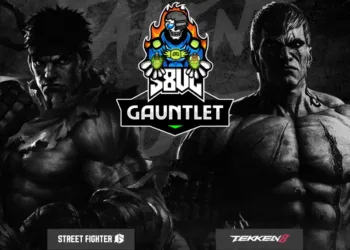Indian cricket is staring at another sponsorship upheaval! The newly introduced Online Gaming Bill 2025 could completely wipe out BCCI‘s biggest revenue streams, putting massive deals worth nearly ₹1000 crores at risk. With Dream11 and My11Circle as major sponsors, the cricket board finds itself in familiar territory – losing sponsors due to regulatory changes beyond their control.
Table of Contents
The Stakes: ₹983 Crore on the Line
The numbers tell a shocking story of potential financial disruption for Indian cricket. BCCI’s current online gaming partnerships represent their most lucrative sponsorship deals, making this regulatory threat particularly concerning for the board’s financial health.
BCCI’s Current Gaming Sponsorship Deals
| Sponsor | Property | Deal Value | Duration | Annual Revenue |
|---|---|---|---|---|
| Dream11 | Team India (Men’s & Women’s) | ₹358 crore | July 2023 – March 2026 | ₹120 crore |
| My11Circle | Indian Premier League | ₹625 crore | IPL 2024 – 2028 | ₹125 crore |
| TOTAL | Combined Value | ₹983 crore | Multi-year | ₹245 crore |
That’s nearly ₹1000 crores in sponsorship revenue that could vanish overnight if the Promotion and Regulation of Online Gaming Bill 2025 passes through Rajya Sabha. For context, this represents more than what many cricket boards worldwide generate in total annual revenue.
The Legislation: What’s at Stake?
The Online Gaming Bill 2025, introduced in Lok Sabha, aims to regulate India’s multi-billion-dollar online gaming sector. While the legislation targets broader industry practices, its impact on cricket sponsorship dynamics could be immediate and severe.
If passed, companies like Dream11 and My11Circle might face operational restrictions that make continued cricket sponsorship unfeasible or financially unviable.
The Ripple Effect: Beyond BCCI Revenue
The potential loss extends far beyond board finances. Some of cricket’s biggest stars have personal endorsement deals with these gaming companies, creating a cascade of financial implications across the sport.
Players with Dream11 Deals:
MS Dhoni, Rohit Sharma, Rishabh Pant, Hardik Pandya, Shreyas Iyer, Jasprit Bumrah
Players with My11Circle Contracts:
Sourav Ganguly, Shubman Gill, Ruturaj Gaikwad, Mohammed Siraj, Arshdeep Singh, Rinku Singh, Yashasvi Jaiswal
These individual endorsement deals, worth crores collectively, could also face termination, impacting players’ earnings significantly.
BCCI’s Sponsorship Curse Continues
This potential crisis adds another chapter to BCCI’s troubled sponsorship history. The board has faced repeated sponsor exits due to various reasons, creating a pattern of instability that’s becoming increasingly concerning.
BCCI’s Sponsorship Disasters: A Timeline
- Oppo (2017-2019): Signed 5-year deal, discontinued after just 2 years
- Vivo (2018-2020): IPL title sponsor deal ended due to India-China tensions
- Byju’s (2019-2022): Failed to make timely payments, contract terminated, company filed insolvency
- Sahara (12 years): Longest-running partnership ended with company declaring insolvency
This track record suggests BCCI struggles with long-term sponsorship stability, often due to external factors beyond their control.
Expert Opinion: Will Cricket Survive?
Sports lawyer Vidushpat Singhania provides measured optimism despite the potential crisis. According to PTI, he believes BCCI won’t struggle finding replacement sponsors due to cricket’s massive popularity in India.
“Cricket is huge in India, and there won’t be any dearth of sponsors for Indian cricket. However, the personal sponsorship market can shrink because of this bill. Fan engagement will also be affected,” Singhania told PTI.
While institutional sponsorship might recover, individual player deals and fan engagement through fantasy gaming could suffer long-term damage.
The Fan Engagement Crisis
The Online Gaming Bill’s impact extends beyond finances to fan engagement. Fantasy cricket has become integral to how modern fans consume the sport, creating deeper connections and sustained interest throughout tournaments.
Without platforms like Dream11 and My11Circle, cricket fan engagement could return to more passive consumption models, potentially affecting television ratings and social media buzz that drives overall commercial value.
Alternative Revenue Streams: BCCI’s Options
Despite past sponsorship failures, BCCI has consistently found replacement partners, though often at different valuations. Potential alternatives include:
Traditional Industries:
- Automotive brands seeking sports association
- Telecommunications companies building on Jio’s success
- Banking and financial services looking for mass appeal
Emerging Sectors:
- Electric vehicle manufacturers targeting younger demographics
- Ed-tech companies seeking cricket’s educational association
- Healthcare and fitness brands aligning with sports values
The Regulatory Landscape Challenge
The Online Gaming Bill highlights a broader challenge facing sports commercialization in India. Rapid regulatory changes in emerging sectors create uncertainty for both sponsors and sports properties, making long-term partnerships increasingly difficult to maintain.
This uncertainty could force BCCI to diversify sponsorship portfolios rather than relying heavily on single high-value sectors.
IPL’s Unique Vulnerability
The IPL faces particular risk with My11Circle’s ₹625 crore deal representing one of the tournament’s most valuable partnerships. Unlike Team India’s broader appeal, IPL’s commercial model depends heavily on digital engagement and fantasy participation – areas directly targeted by the new legislation.
What Happens Next?
The bill’s journey through Rajya Sabha will determine the timeline for potential sponsor exits. If passed quickly, BCCI might face immediate contract renegotiations or terminations. A delayed process could allow gradual transitions to alternative sponsors.
International Precedents
Other cricket boards have faced similar regulatory challenges. Australia’s restrictions on betting advertisements affected Cricket Australia’s commercial partnerships, while England’s gambling advertising rules impacted county cricket sponsorships. However, these boards adapted by diversifying revenue sources.
The Silver Lining: Forced Innovation
While disruptive, this crisis could force BCCI to innovate commercially. Rather than depending on single high-value sectors, the board might develop more resilient, diversified sponsorship portfolios less vulnerable to regulatory changes.
This could include international sponsorship expansion, technology partnerships, and sustainable brands seeking sports association.
The Bottom Line
The Online Gaming Bill 2025 represents another test of BCCI’s commercial resilience. While the potential loss of ₹1000 crores in sponsorship seems catastrophic, cricket’s fundamental appeal in India remains unchanged.
The real challenge lies in maintaining financial stability while adapting to regulatory realities. BCCI’s track record suggests they’ll find replacement sponsors, but the quality and value of those partnerships remain uncertain.
For Indian cricket, this could mark the end of the fantasy gaming boom era and the beginning of a more traditional, diversified commercial approach.
Do you think BCCI will successfully navigate this sponsorship crisis? What alternative sponsors would you like to see supporting Indian cricket?
Follow the latest cricket business developments and sponsorship news at Technosports Cricket Business Hub.
Read more: Online Gaming Bill 2025: What are the Industry Experts saying?








